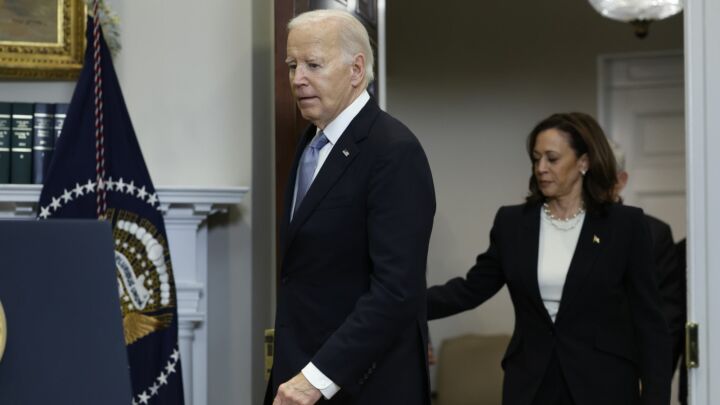Sunak’s ‘national service’ won’t foster national pride
Young people need to feel a genuine stake in our society and its traditions.

Want to read spiked ad-free? Become a spiked supporter.
The Conservative Party’s plan to bring back a form of national service if it wins the General Election has proven more than a little controversial.
The exact details of the plan remain sketchy. But, as it stands, all 18-year-olds would be given the choice of a full-time military placement for 12 months or a scheme to volunteer for one weekend a month for a year. Despite some of the more excitable responses to the plan, it does not herald the return of some form of conscription. There would only be 30,000 military placements available, with tests introduced to determine the selection of applicants. The vast majority of 18-year-olds would have no involvement with the military. They would essentially be involved in the 12-month-long community-service programme.
UK prime minister Rishi Sunak claims that the plan will foster ‘national spirit’. Home secretary James Cleverly says it will help young people to get out of their ‘bubble’.
The theory is that, through military service or working for a charitable organisation, young people will be given the opportunity to develop a sense of civic pride and social responsibility. They will also have chances to interact with other people from different backgrounds, forge new social bonds and develop a sense of mutual trust. That sounds like it could be good for social cohesion going forward.
Yet I have reservations about such a scheme. Not because I agree with some of its more hysterical critics, who claim the Tories want to send the nation’s young into battle against Putin’s war machine. But because the plan won’t work even on its own terms.
It’s all very well trying to use a revamped form of national service to encourage a sense of national belonging and civic responsibility among young people. But any gains will be cancelled out by an existing economic, social and political arrangement that is stacked against young people. They struggle to get decent-paying jobs and find it near impossible to get on the housing ladder. If the Tories were serious about cultivating a sense of national belonging among our youth, they would be outlining a fairer socio-economic settlement – one that offers teenagers and twentysomethings the opportunity to have a meaningful stake in society.
What about offering them more educational and vocational options? What about providing more affordable housing? There are many issues that the next government must address before it thinks about reintroducing national service.
The idea that national service by itself would do much to forge a sense of national belonging, even pride, is for the birds. It would be more helpful to start defending and celebrating Britain’s heritage and traditions in existing institutions, such as schools and colleges. It would also be useful to sort out Britain’s dysfunctional immigration and asylum regime, and to properly integrate newcomers into society.
Before it starts contemplating mandatory military and community service for 18-year-olds, any new government has far more pressing concerns. It needs to come up with a sound educational and economic offer for youngsters – one that provides them with a genuine chance of being part of our property-owning democracy. It also has to encourage Brits to be more confident in their nation’s history and its contributions to the world. Above all, it needs to work towards establishing British citizenship as a source of pride.
Only then should Britain entertain the possibility of reintroducing national service.
Rakib Ehsan is the author of Beyond Grievance: What the Left Gets Wrong about Ethnic Minorities, which is available to order on Amazon.
Picture by: Getty.
To enquire about republishing spiked’s content, a right to reply or to request a correction, please contact the managing editor, Viv Regan.









Comments
Want to join the conversation?
Only spiked supporters and patrons, who donate regularly to us, can comment on our articles.